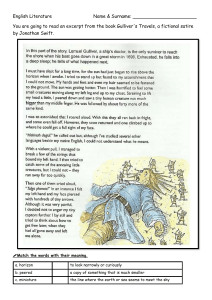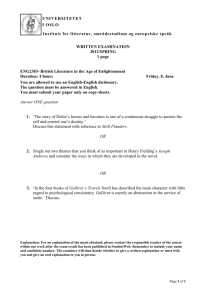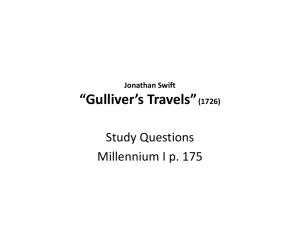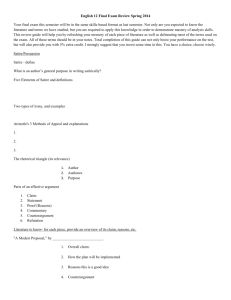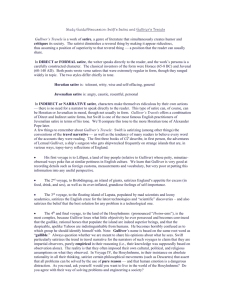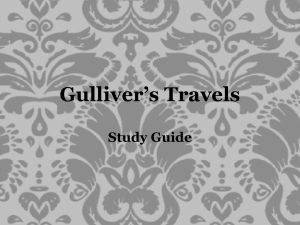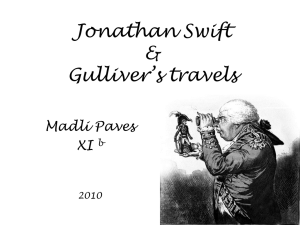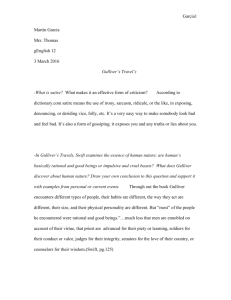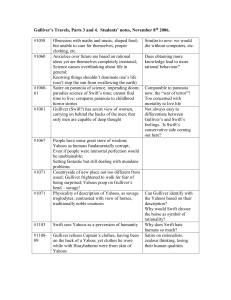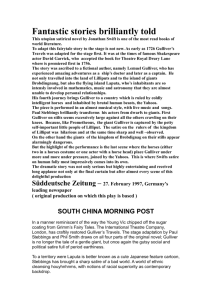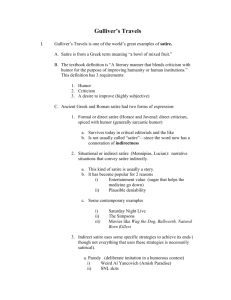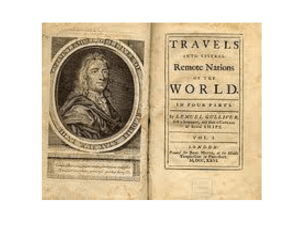Gulliver`s Travels.doc - andriafoxwritingfolder
advertisement
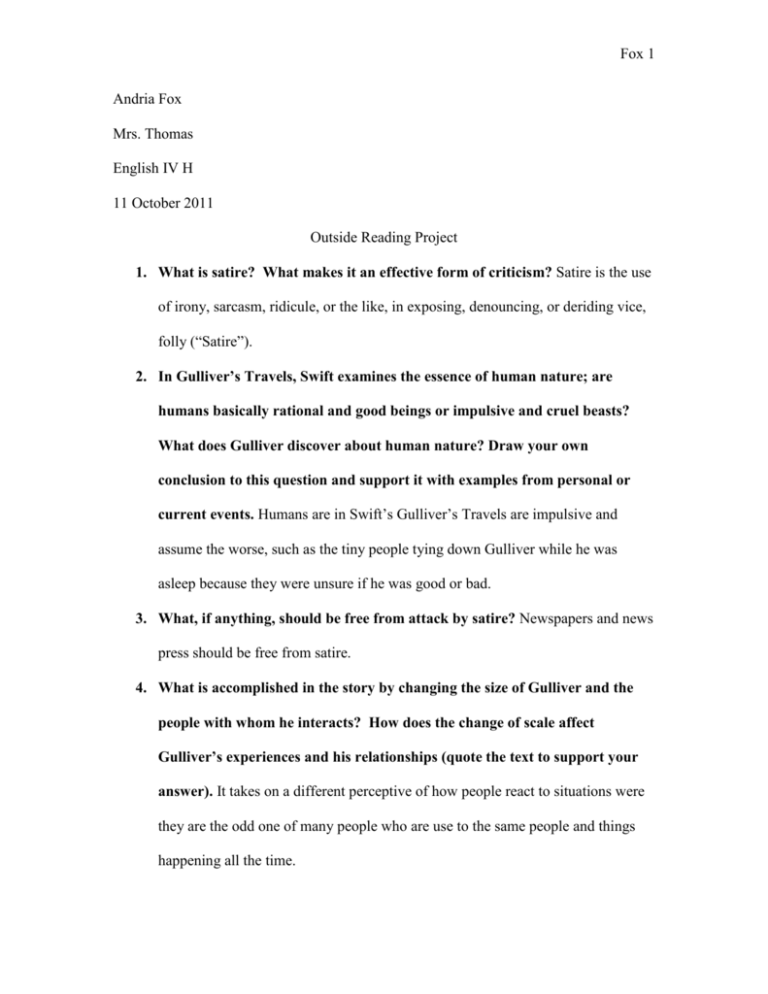
Fox 1 Andria Fox Mrs. Thomas English IV H 11 October 2011 Outside Reading Project 1. What is satire? What makes it an effective form of criticism? Satire is the use of irony, sarcasm, ridicule, or the like, in exposing, denouncing, or deriding vice, folly (“Satire”). 2. In Gulliver’s Travels, Swift examines the essence of human nature; are humans basically rational and good beings or impulsive and cruel beasts? What does Gulliver discover about human nature? Draw your own conclusion to this question and support it with examples from personal or current events. Humans are in Swift’s Gulliver’s Travels are impulsive and assume the worse, such as the tiny people tying down Gulliver while he was asleep because they were unsure if he was good or bad. 3. What, if anything, should be free from attack by satire? Newspapers and news press should be free from satire. 4. What is accomplished in the story by changing the size of Gulliver and the people with whom he interacts? How does the change of scale affect Gulliver’s experiences and his relationships (quote the text to support your answer). It takes on a different perceptive of how people react to situations were they are the odd one of many people who are use to the same people and things happening all the time. Fox 2 5. What were Jonathan Swift’s views on science and technology? What are yours? How do they compare? I have no views on science and technology. 6. How does Gulliver’s Travels compare to the short story you read in terms of views on science and technology? Gulliver’s Travels has left to do with technology than a lot of other short stories I have read. Normally the short stories I read are about the future and the way technology impacts society. Fox 3 Works Cited “Satire” dictionary.reference.com. 2011. Web. 11 October 2011.
